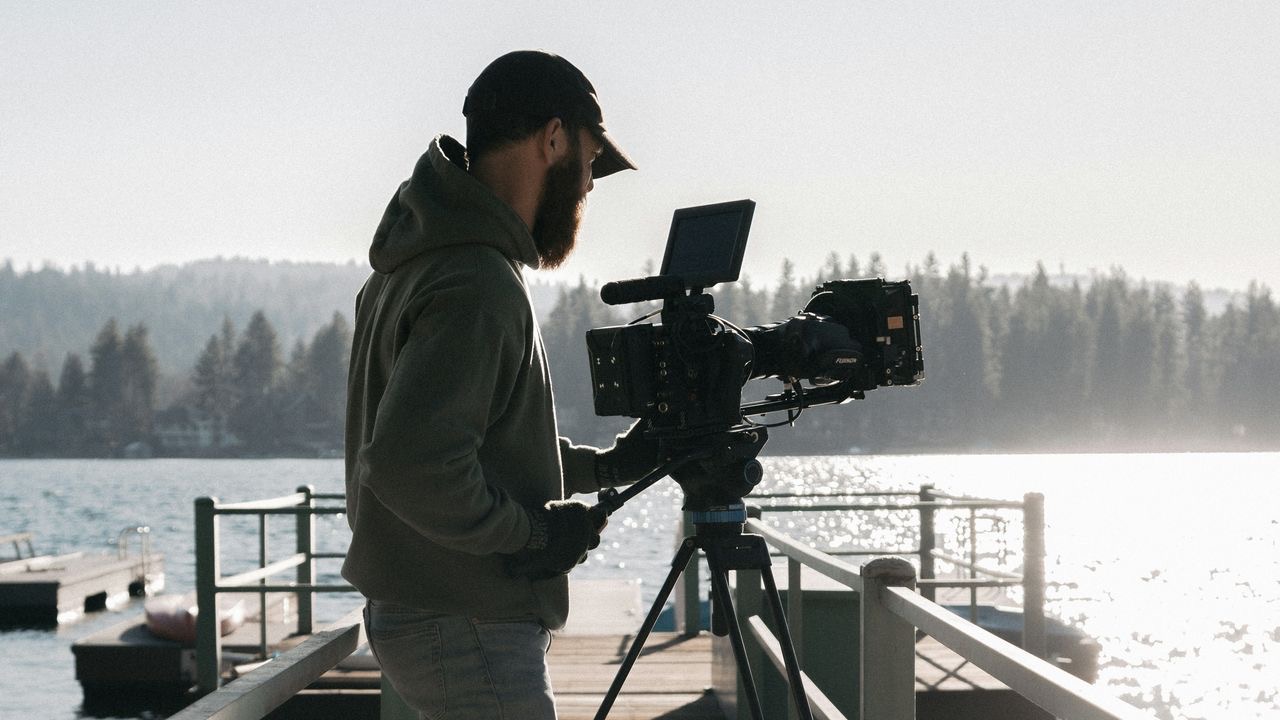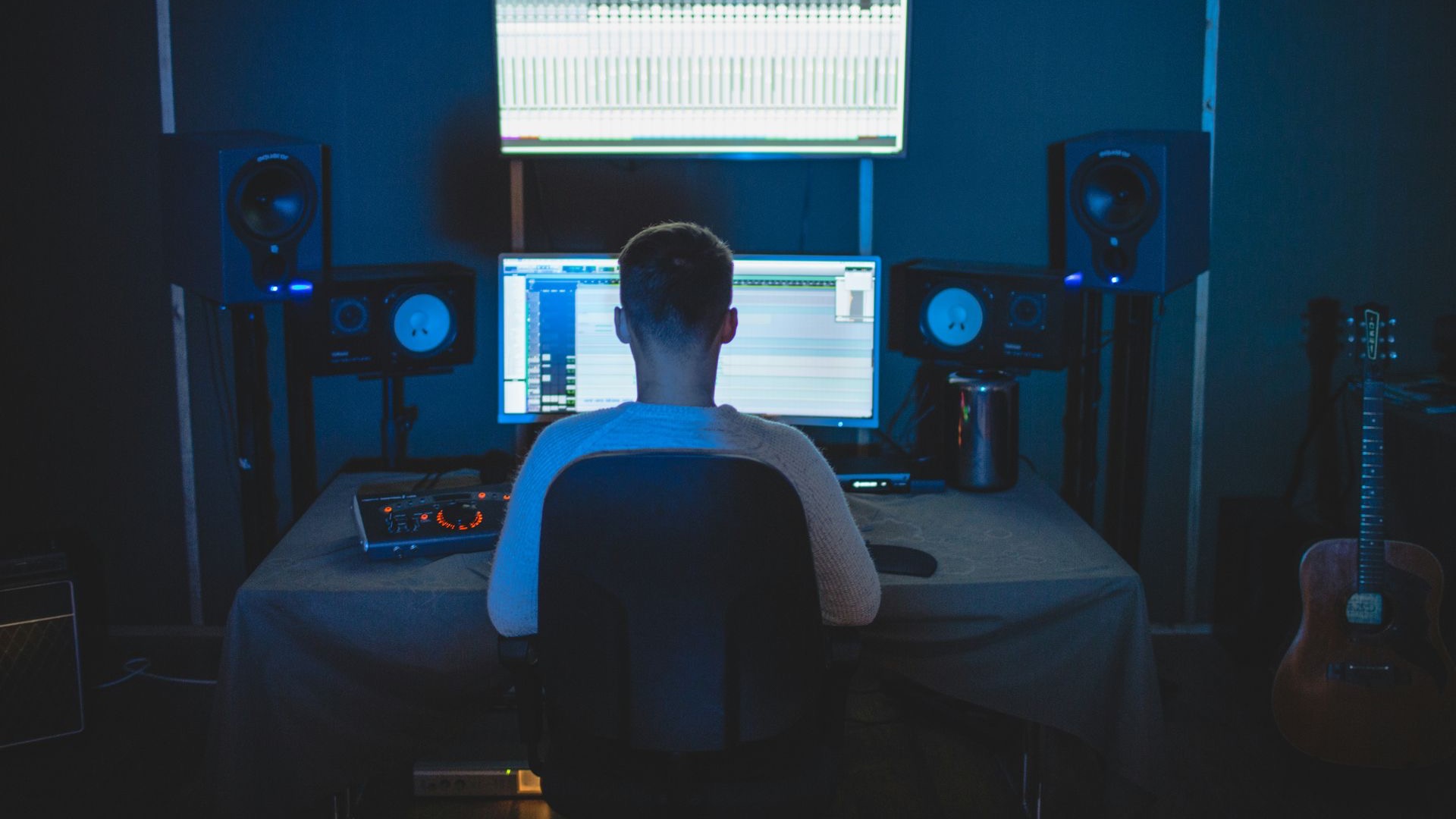Music Matters: The Psychology of Music in Video Production
Music is an integral part of video production that often goes unnoticed, yet it plays a pivotal role in shaping the emotional landscape, tone, and overall effectiveness of the content. Whether it’s the suspenseful strings in a thriller, the uplifting beats in a commercial, or the subtle ambient sounds in a documentary, music can transform a video from ordinary to extraordinary. But how exactly does music influence a video’s success, and what are the best practices for choosing the right soundtrack?

Amplifying your video's impact
Music is deeply intertwined with human emotions, and its psychological impact is well-documented. Studies have shown that different genres, tempos, and instruments can evoke specific emotions, such as joy, sadness, or tension. For example, fast-paced music with a major key often creates excitement and positivity, while slower tempos in a minor key can evoke melancholy or introspection.
In video production, this psychological effect can be harnessed to guide the audience’s emotional journey. A corporate video aiming to inspire trust and reliability might use steady, orchestral music to create a sense of stability, while a travel video could use lively, rhythmic music to evoke a sense of adventure. Understanding the emotional response that different types of music elicit can help you craft a more engaging and resonant video experience.
Building Atmosphere with Music
The tone of your video is significantly influenced by its soundtrack. Music sets the stage, letting the audience know what kind of content they’re about to engage with. For instance, the use of a jaunty jingle in a commercial instantly signals a light-hearted, approachable brand, while an epic orchestral score might suggest something grand or heroic.
But it’s not just about matching the music to the content—it’s also about enhancing the atmosphere. Imagine a video tour of an eco-friendly resort: serene, nature-inspired music with gentle wind chimes and soft strings can evoke the tranquility and harmony with nature that the resort embodies. On the other hand, a high-energy promotional video for a new sports drink would benefit from upbeat, energetic music that reflects the dynamism and vigor associated with athleticism.

Case Studies: Effective Music Use in Video Campaigns
Consider Apple’s famous “1984” Super Bowl commercial. The ominous, dystopian music helped create a sense of rebellion and revolution, perfectly aligning with the narrative of breaking free from conformity. Similarly, Nike’s use of driving, motivational music in its “Just Do It” campaigns has become synonymous with athleticism and perseverance, driving home the brand’s message of empowerment.
On a more localized scale, think about your own projects in your city. How has music played a role in shaping the narratives of the videos you’ve produced? Reflecting on these examples and drawing parallels to your work can provide valuable insights into the power of music in video production.

Silence Speaks Volumes: The Strategic Use of Silence
While music is powerful, the absence of sound can be equally impactful. Strategic use of silence in video production can create tension, emphasize important moments, or offer the audience a moment of reflection. Silence can draw attention to a visual or a spoken word, making it more powerful and memorable. It’s a technique often used in documentary filmmaking to let the gravity of a situation sink in, or in dramatic scenes to heighten suspense.

Licensing Music: Navigating the Legal
When it comes to incorporating music into your videos, understanding the legalities of music licensing is crucial. Licensing music ensures that you have the rights to use a particular track, protecting your video from legal issues and guaranteeing that the artist is compensated for their work.
There are various ways to license music: you can purchase a license for a specific track, subscribe to a music licensing service, or hire a composer to create original music tailored to your project. In Canada, SOCAN (Society of Composers, Authors and Music Publishers of Canada) plays a key role in managing music rights, and understanding how to navigate this landscape can save time and potential headaches.

Supporting Local Talent: The Benefits of Collaboration
Wherever you're based, have you considered collaborating with local artists?
In Ottawa, the local music scene is vibrant, and there are numerous talented composers and musicians who can bring a unique flair to your video projects. Collaborating with local artists not only supports the community but also enhances the creative process. Being able to meet in person, discuss the project’s goals, and provide immediate feedback can result in a more cohesive and tailored soundtrack.
For example, when working on a documentary about the history of Ottawa, engaging a local composer who understands the cultural nuances can add an authentic touch to the production. This level of collaboration often leads to a more harmonious and impactful final product.

Optimizing Music for Different Platforms
Different platforms require different approaches to music. A video intended for social media, where viewers often watch with the sound off, might prioritize catchy visuals over intricate sound design, but when the sound is on, the music needs to grab attention quickly. You may want to consider following trending songs on TikTok for additional visibility over being creative and outside-the-box.
In contrast, a corporate video played at a conference can benefit from a more extended, immersive score that complements the visuals without overwhelming them.
Understanding the platform’s audience and typical viewing habits can guide your music choices, ensuring that your video is as effective as possible, no matter where it’s viewed.

Future Trends in Video and Music
The future of music in video production is evolving, with AI-generated music, personalized soundtracks, and immersive audio experiences becoming more prominent. Staying ahead of these trends can give your projects a competitive edge.
AI tools now allow for music to be generated based on specific emotions or themes, offering a cost-effective way to create custom soundtracks. Personalized soundtracks, where the music adapts to the viewer’s preferences or the narrative of the video, are also on the rise, providing a more engaging experience. Immersive audio, such as 3D sound, can create a more dynamic viewing experience, making the audience feel like they’re part of the scene.

Conclusion: The Art and Science of Music in Video Production
The choice of music in video production is both an art and a science, requiring a deep understanding of the emotional and psychological impact of sound, as well as the technical aspects of licensing and platform optimization. By carefully selecting and crafting the music for your videos, you can enhance the tone, atmosphere, and overall effectiveness of your content.
Whether you’re working on corporate video production, a promotional campaign, or a documentary, the right music can make all the difference. It’s not just about filling the background—it’s about creating an emotional connection, guiding the audience’s journey, and ultimately, driving action. In the ever-evolving world of video production, staying attuned to the power of music is key to crafting content that resonates and endures.
More about Mainspring Agency - Video Production Company
Mainspring Agency is a top video production company, providing video production services in Canada and the US. We’re a passionate team of storytellers and visual artists committed to delivering exceptional video content.
We approach each project with a blend of creativity and strategy, ensuring that every video not only looks stunning but also drives meaningful results. Our work is driven by a desire to elevate our clients’ brands, connect with audiences, and make a positive impact on the world.
Whether it’s corporate video production, testimonial advertising, or documentary production, Mainspring Agency consistently ranks among the top Canadian production companies.
